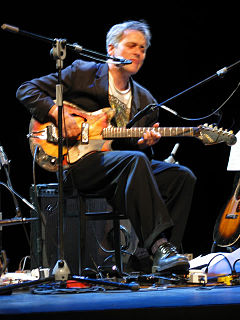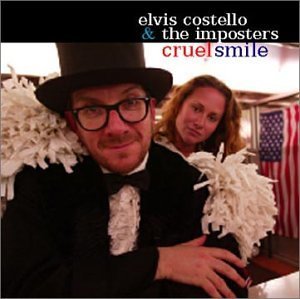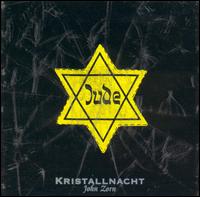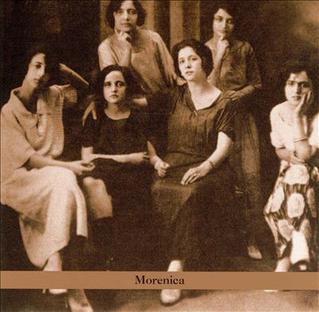
Bar Kokhba is a double album by John Zorn, recorded between 1994 and 1996. It features music from Zorn's Masada project, rearranged for small ensembles. It also features the original soundtrack from The Art of Remembrance – Simon Wiesenthal, a film by Hannah Heer and Werner Schmiedel (1994–95).

John Zorn is an American composer, conductor, saxophonist, arranger and producer who "deliberately resists category". Zorn's avant-garde and experimental approaches to composition and improvisation are inclusive of jazz, rock, hardcore, classical, contemporary, surf, metal, soundtrack, ambient, and world music. In 2013, Down Beat described Zorn as "one of our most important composers" and in 2020 Rolling Stone noted "Though Zorn has operated almost entirely outside the mainstream, he's gradually asserted himself as one of the most influential musicians of our time".

Marc Ribot is an American guitarist and composer.

Ned Rothenberg is an American multi-instrumentalist and composer. He specializes in woodwind instruments, including the alto saxophone, clarinet, bass clarinet, flute, and shakuhachi. He is known for his work in contemporary classical and free improvisation. Rothenberg is a graduate of the Oberlin Conservatory of Music. He was a founding member of the woodwind trio New Winds with J. D. Parran and Robert Dick. He has performed with Samm Bennett, Paul Dresher, Fred Frith, Evan Parker, Marc Ribot, Elliott Sharp, John Zorn, Yuji Takahashi, Sainkho Namtchylak, and Katsuya Yokoyama.

Cruel Smile is a 2002 album by Elvis Costello and the Imposters. It consists of B-sides and leftover material from the When I Was Cruel sessions.

The Big Gundown is an album by American composer and saxophonist/multi-instrumentalist John Zorn. It comprises radically reworked covers of tracks by the Italian film composer Ennio Morricone.

Anthony Coleman is an avant-garde jazz pianist. During the 1980s and 1990s he worked with John Zorn on Cobra, Kristallnacht, The Big Gundown, Archery, and Spillane and helped push modern Jewish music into the 21st century.

Kristallnacht is an album by John Zorn first released in 1993 on the Japanese Eva label and subsequently in 1995 on Zorn's own Tzadik Records label.

Roy Jay Nathanson is an American saxophonist, composer, bandleader, actor and teacher. He became the leader and principal composer of the Jazz Passengers, a six piece group that he founded with Curtis Fowlkes in 1987. They have toured Europe many times and played at major festivals in Finland, Germany, Italy, France and Switzerland, as well as the J.V.C. Festival in New York, the Du Maurier Festival in Canada and toured throughout the United States and Canada. The band has recorded eight albums since their debut release.

Filmworks II: Music for an Untitled Film by Walter Hill features the second release of scores for film by John Zorn. The album was originally released on the Japanese Toys Factory label in 1995 and subsequently re-released on Zorn's own label, Tzadik Records, in 1996. It features the music that Zorn wrote and recorded for Trespass which director Walter Hill rejected in favour of a score by Ry Cooder.

Filmworks III: 1990–1995 features the scores for film and advertisements by John Zorn. The album was originally released on the Japanese labels Evva in 1995 and Toys Factory in 1996 and subsequently re-released on Zorn's own label, Tzadik Records, in 1997. It features the music that Zorn wrote and recorded for Thieves Quartet (1993), directed by Joe Chappelle, which was performed by the group that would become Masada; nine cues for Kiriko Kubo's Music For Tsunta (1988); eleven tracks for Hollywood Hotel (1994), directed by Mei-Juin Chen; and thirty-two pieces for advertisements by Wieden & Kennedy.

Filmworks VIII: 1997 features two scores for film by John Zorn released on Zorn's own label, Tzadik Records, in 1998. It features the music that Zorn wrote and recorded for The Port of Last Resort (1998), a documentary directed by Joan Grossman and Paul Rosdy examining the experiences of Jewish refugees in Shanghai and Latin Boys Go to Hell (1997) which was directed by Ela Troyano.

Soundtracks Volume 2 is a 2003 album of film music by Marc Ribot released on Tzadik Records.

Shoe String Symphonettes is a 1997 album of film music by Marc Ribot released on Tzadik Records.

Rootless Cosmopolitans is the debut solo album by American guitarist Marc Ribot, released by Antilles in 1990.

Requiem for What's His Name is the second album by Marc Ribot & The Rootless Cosmopolitans which was released by the Belgian label Les Disques du Crepuscule in 1992.
This is a discography for guitarist Marc Ribot, including both his own albums and significant recordings to which he has contributed. The year in brackets indicates the date of first release.

Sephardic Tinge is an album by pianist Anthony Coleman which was released on the Tzadik label in 1995.

Morenica is an album by pianist Anthony Coleman's Sephardic Tinge which was released on the Tzadik label in 1998.

Our Beautiful Garden is Open is an album by pianist Anthony Coleman's Sephardic Tinge which was released on the Tzadik label in 2002.



















